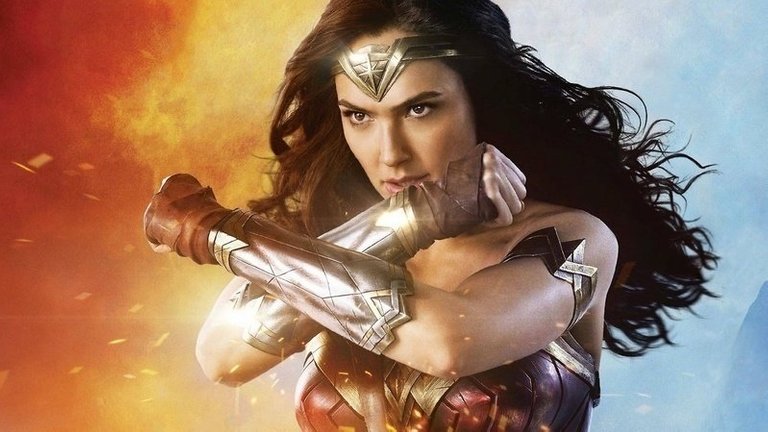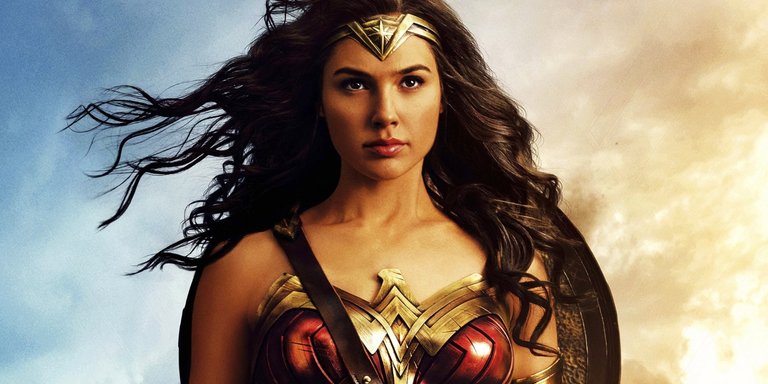By Shannon Serpette
She’s one of the most beloved heroes in the D.C. universe. She’s an icon that generations have looked up to for her incredible abilities and her interesting backstory. But many people aren’t familiar with how Wonder Woman came to be in the first place. How did the Amazing Amazon end up on the pages of our comic books and begin her battle to win over our hearts?
Wonder Woman was brought to life by a psychologist and writer named William Moulton Marston, who worked under the pen name of Charles Moulton. Marston discussed comic books and their untapped potential in 1940 during a magazine interview. That interview led to a call from comic publisher Max Gaines who then made an offer for Marston, who had already gained fame for creating the polygraph, to serve as an educational consultant for DC Comics predecessors – All-American Publications and National Periodicals.

Serving as a consultant wasn’t enough for Marston – he wanted to create his own superhero and was given the greenlight to do so.
As one might guess when seeing how radically different Wonder Woman was compared to the other women in comic books at the time, Marston was inspired by early feminists when creating the character. Wonder Woman wasn’t meant to be a damsel in distress or a merely a love interest for a male hero like Lois Lane was for Superman. She was to be powerful, while still retaining her femininity.
But while Marston created the character, it wasn’t without some inspiration from the women in his life.
When he told his wife he wanted to create a hero who didn’t just have powers, but had a great capacity for love, his wife, Elizabeth, said the hero should be a woman. But the couple’s live-in lover, Olive Byrne, is also credited with being an inspiration to the creation of Wonder Woman. Marston modeled Wonder Woman’s bracelets upon some frequently worn by Byrne.
In Wonder Woman’s back story, the bracelets were made from the shield of Zeus and are reputed to be indestructible. But the bullet-deflecting bracelets weren’t Wonder Woman’s only accessories. She also had her magic lasso that forced the truth out of anyone who it was wrapped around.
The well-known tiara she wears is much more than a nod to her royal ancestry. It can be used as a weapon too. Wonder Woman can throw it around as a weapon – as an added bonus, it is a boomerang, always returning to her after she throws it.
In the early days of her history, Wonder Woman also had an invisible jet she could fly around in. That was before she had the ability to fly by herself, which came in later years.
Wonder Woman first graced the pages of a comic book in All Star Comics #8 in December 1941. Less than a year later, she earned the designation of becoming the first female hero to get her own comic book series.
Like many superheroes, Wonder Woman also has a secret identity. While Wonder Woman is free to live as an Amazon on her island of Themyscira, she becomes Diana Prince whenever she’s off the island.
Her original backstory is that her mother, Queen Hippolyta, sculpted her from clay and she was brought to life by Aphrodite. Her amazing abilities were bestowed upon her by Greek gods. She was a confident, intelligent, and compassionate role model for the millions of girls who grew up idolizing her, happy they finally had a comic book figure they could emulate.

Because Wonder Woman came to life around the same time World War II was beginning, she was embroiled in that world, serving as a military secretary when she assumed the role of Diana Prince. Under Marston’s direction, the Diana Prince alias came about when Wonder Woman met an army nurse named Diane Prince. She helped the nurse disappear to South America where she wanted to join her husband-to-be. In exchange, she assumed the identity of Diana Prince and began work as a nurse in the army before becoming a secretary.
Some of her early foes were Axis military forces. Although she was busy fighting the Nazis, she still had time to fall in love with military man Steve Trevor. Trevor is featured prominently in Wonder Woman’s early story lines but isn’t mentioned at all in many later story lines.
As Wonder Woman evolved, she had better villains to fight, including Cheetah, Ares, Circe, and Giganta. Unlike Superman who had Lex Luthor, Wonder Woman never had a larger-than-life nemesis that stands above all the rest she fought and was considered her primary foe. And unlike the villains fighting D.C.’s other top superhero, Batman, Wonder Woman’s arch enemies weren’t as well developed and plentiful, like the Joker, Penguin, Poison Ivy, Clayface, Bane, Scarecrow, the Riddler, and Dr. Freeze.
Despite the lack of enemies who could match her star power, Wonder Woman continued to gain popularity in the comic book world. She became a member of the Justice League and is one of DC Comics most enduring and beloved heroes.
Since her early days, Wonder Woman has come a long way. She’s one of the most recognizable faces in comics and still remains one of DC’s Big Three, along with Superman and Batman. She spawned a hit television show starring Lynda Carter in the 1970s, has been featured in countless cartoons, and finally was given her own movie, which starred Gal Gadot and smashed box office expectations and won the hearts of critics.
In comic books, she no longer is performing the dated profession of a secretary. While that was her role in 1941 as World War II unfolded, her profession has changed over the years. She has been a translator at the United Nations and a museum curator.
In the end, despite the unconventional start to Wonder Woman’s creation, Marston was successful in his mission to create a heroine who had Superman’s strength, but a softer side as well. Wonder Woman was more than just a fictional character to Marston – she is the type of woman he said he would like to see rule the world.
Uncomplicated article. I learned a lot of interesting and cognitive. I'm screwed up with you, I'll be glad to reciprocal subscription))
wonderful woman and very well post dear @thebeesknees..i like this post.. thanks for sharing eith us D:)